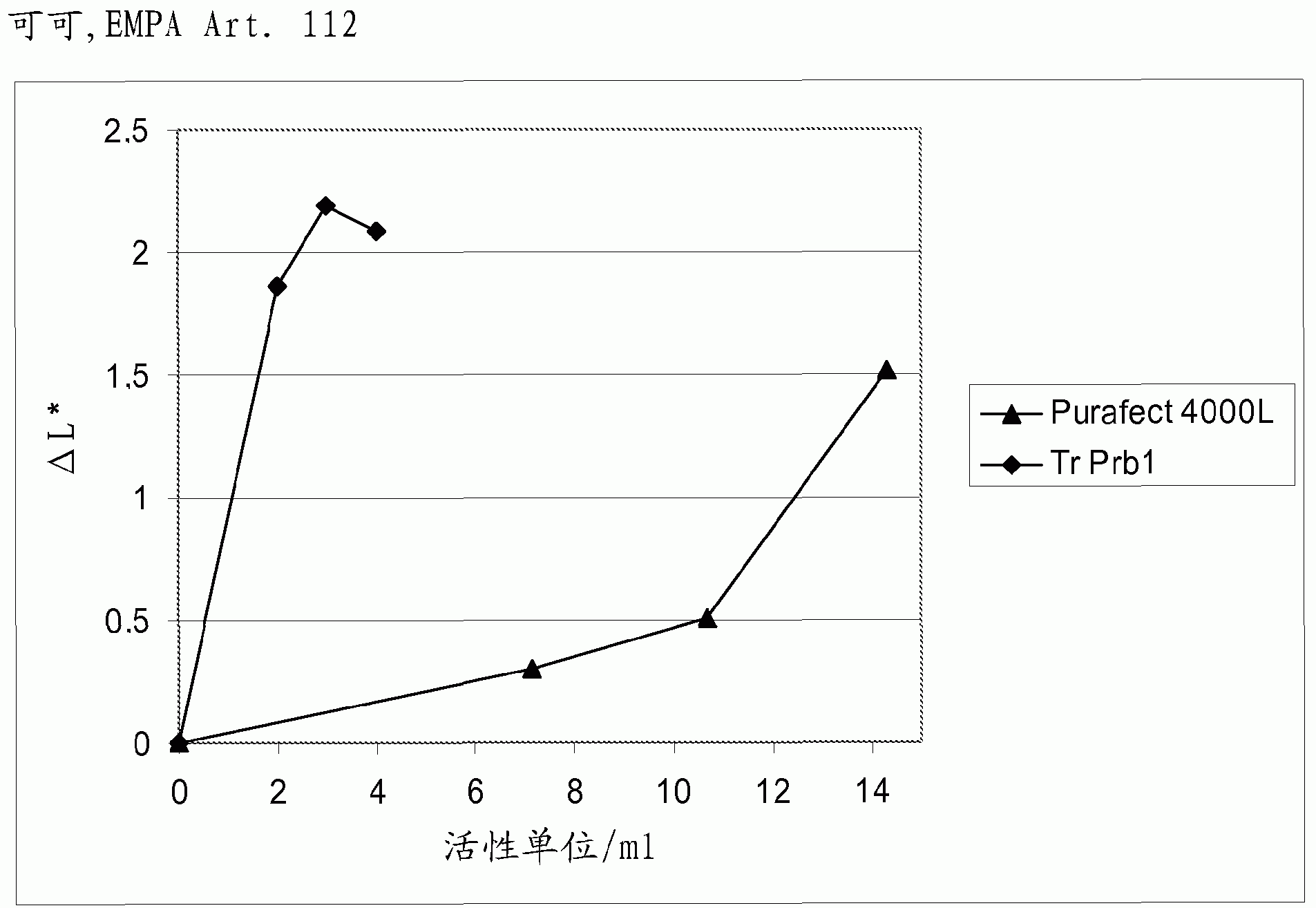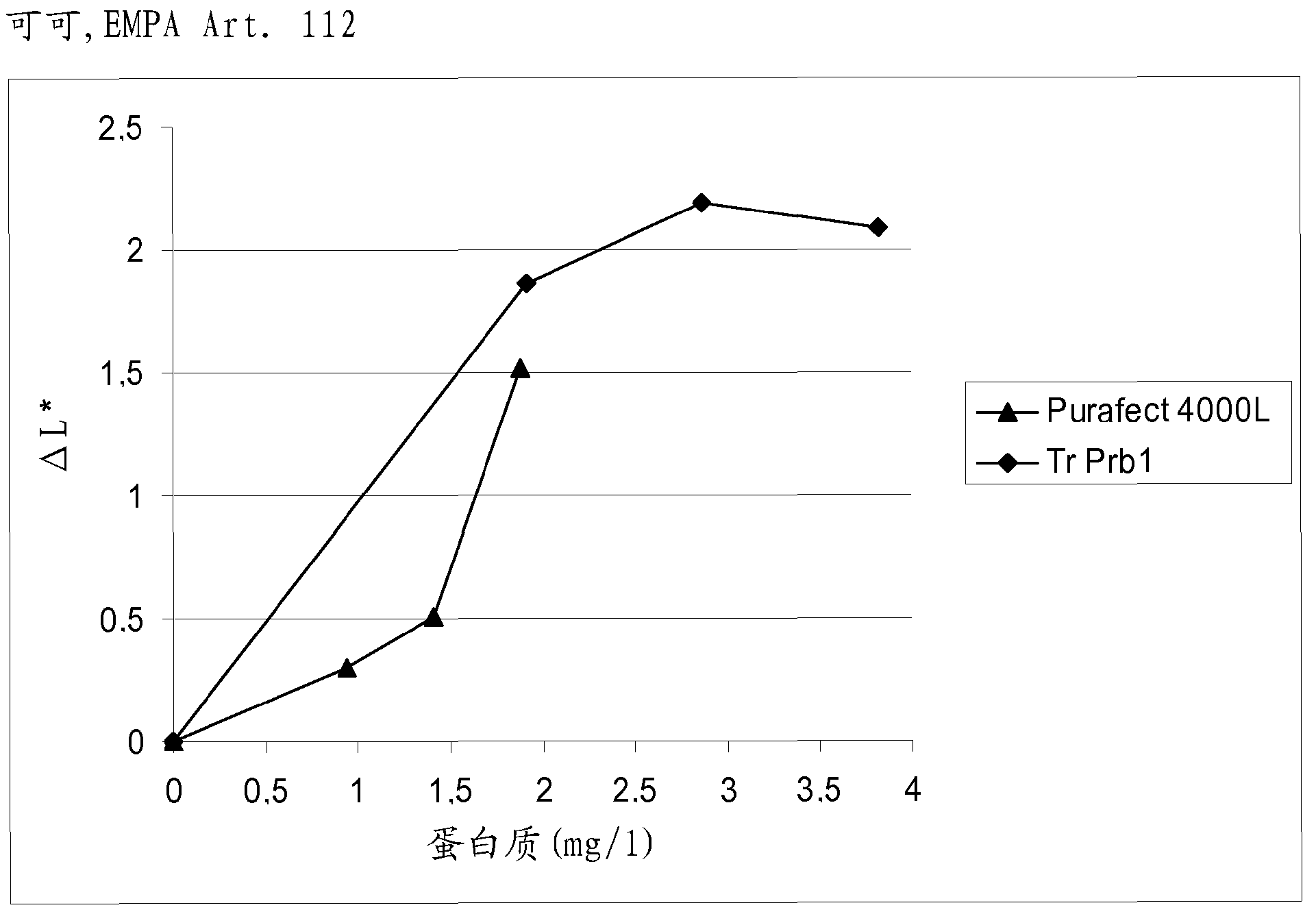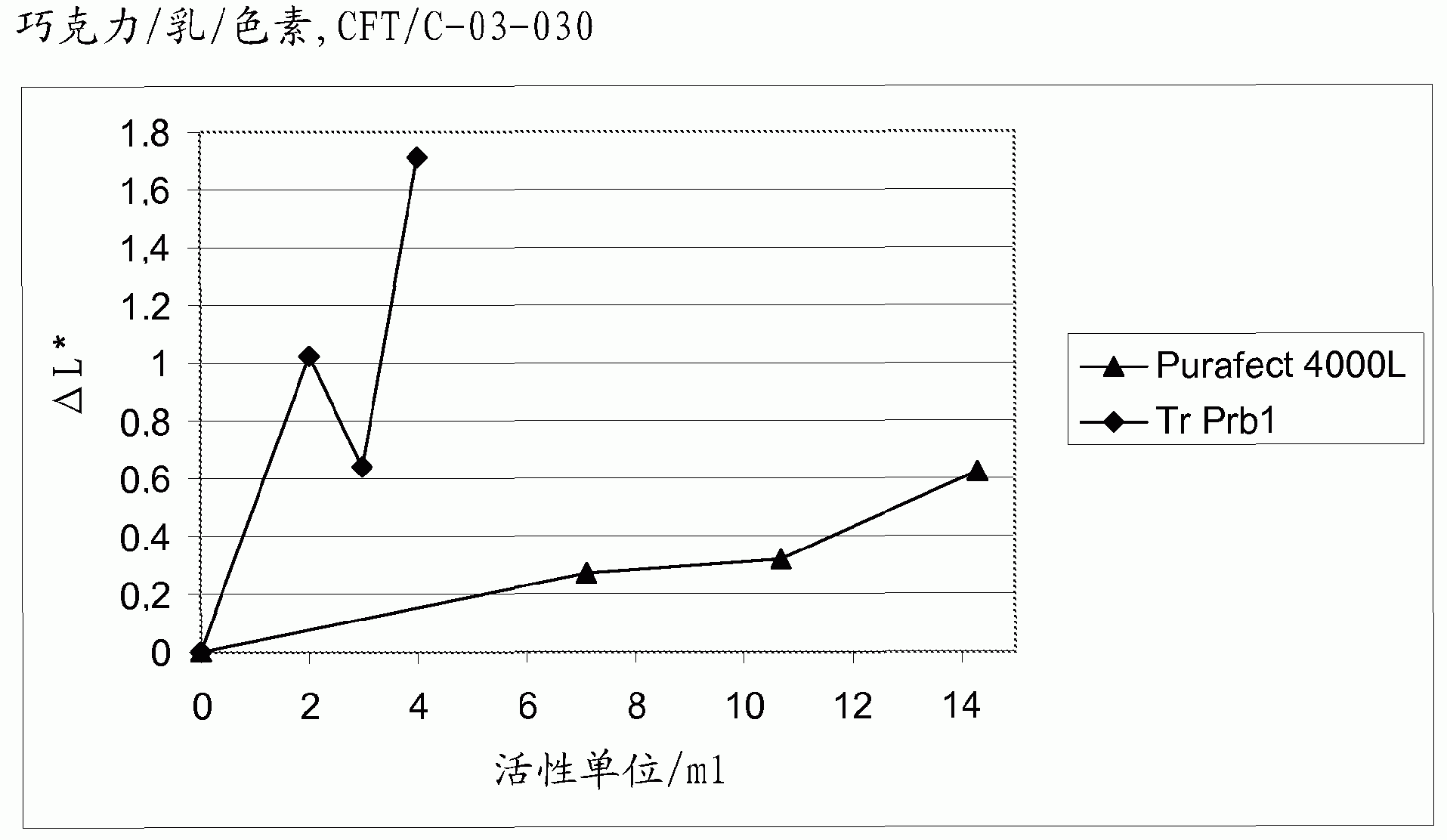A fungal protease and use thereof
A technology of serine protease and fungus, applied in hydrolytic enzymes, biochemical treatment of enzymes/microorganisms, introduction of foreign genetic material using vectors, etc., can solve problems that have not been studied
- Summary
- Abstract
- Description
- Claims
- Application Information
AI Technical Summary
Problems solved by technology
Method used
Image
Examples
Embodiment 1
[0209] Embodiment 1. Trichoderma reesei QM6a prb1 ( Tr prb1 ) and Fusarium graminearum ALKO1726 FgprtS8A Cloning of the protease gene
[0210] (a) DNA isolation and molecular biology methods used
[0211] Standard molecular biology methods are used for isolation and enzymatic treatment of DNA (eg, isolation of plasmid DNA, digestion of DNA to generate DNA fragments), transformation in E. coli, sequencing, etc. Basic methods used are as described by the enzyme, reagent or reagent expression cassette manufacturer, or as described in standard molecular biology handbooks such as Sambrook and Russell (2001). Isolation of genomic DNA from T. reesei QM6a and F. graminearum ALKO1726 was performed as described by Raeder and Broda (1985). The phenol extraction phase was performed using PhaseLock tubes (Eppendorf, Germany).
[0212] (b) Oligonucleotide primers for gene cloning
[0213] Cloning by PCR using Trichoderma reesei QM6a and Fusarium graminearum ALKO1726 genomic DNA pre...
Embodiment 2
[0223] Example 2. Production of Tr Prb1 and Fg_ALKO1726 recombinant protease in Trichoderma reesei
[0224] (a) Preparation of expression cassette and its transformation into Trichoderma reesei
[0225] by separately amdS ( Acetamidase) marker gene was connected to plasmid pALK2650 and pALK2707 (Example 1c) to construct the expression plasmid pALK2701 ( Tr prb1 ) and pALK2708 ( FgprtS8A ). amdS marked in cbh1 The terminator is ligated into the expression construct. Similar constructions have been described eg in Paloheimo et al. (2003). In expression cassettes pALK2701 and pALK2708 ( image 3 with 4 ), by PCR will have its own signal sequence Tr prb1 with FgprtS8A Trichoderma reesei cbh1 (cel7A) Promoter exact fusion. Use the one generated after the stop codon in PCR Bam HI site, connecting the 3-' end of the gene with cbh1 Terminator fusion. This is in the build in cbh1 The original termination sequence is not left before the terminator sequence. us...
Embodiment 3
[0231] Example 3. Purification and characterization of recombinant Tr Prb1 and Fg_ALKO1726 proteases
[0232] Cells and solids were removed from the spent medium obtained from the fermentation (Example 2) by centrifugation for 30 min at 4°C, 50000 g (Sorvall RC6 plus). 15 ml of supernatant was used for protease purification. All purification steps were performed in a cold room. After centrifugation, samples were filtered through a 0.44 μm filter (MILLEX HV Millipore) before being applied to a HiPrep 26 / 10 Desalting column (from GE Healthcare) equilibrated in 20 mM Tris pH 8.8. Gel filtered samples were applied to a 20 mL Q Sepharose FF column (from GE Healthcare) equilibrated in 20 mM Tris pH 8.8. The effluent fraction with proteolytic activity was concentrated using an Amicon Ultra centrifugal filter unit 10000 MWCO (Millipore). The concentrated sample was applied to a Superdex 75 10 / 300 GL column (GE Healthcare) and eluted with 20 mM Hepes, 150 mM NaCl pH 6,8. Protease-c...
PUM
| Property | Measurement | Unit |
|---|---|---|
| molecular weight | aaaaa | aaaaa |
| molecular weight | aaaaa | aaaaa |
Abstract
Description
Claims
Application Information
 Login to View More
Login to View More - R&D
- Intellectual Property
- Life Sciences
- Materials
- Tech Scout
- Unparalleled Data Quality
- Higher Quality Content
- 60% Fewer Hallucinations
Browse by: Latest US Patents, China's latest patents, Technical Efficacy Thesaurus, Application Domain, Technology Topic, Popular Technical Reports.
© 2025 PatSnap. All rights reserved.Legal|Privacy policy|Modern Slavery Act Transparency Statement|Sitemap|About US| Contact US: help@patsnap.com



